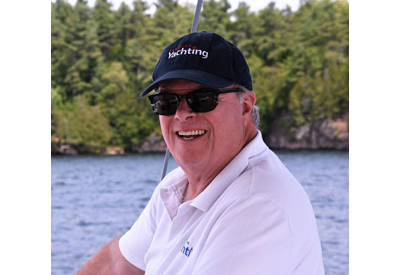Environment versus commerce

June 13, 2023
This past week was a black one for Canada as record numbers of wildfires from coast to coast, blanketed large parts of North America in smoke and fumes. Video of dark orange skies over New York city were carried on news outlets world-wide.
The boat business is a major gateway to the pristine world of lakes and countryside that city dwellers dream of visiting but this year, the tension between the environment and the demands of commerce seem to be in really sharp focus.
In British Columbia, environmental lobby groups like the Georgia Strait Alliance are fighting hard against the Roberts Bank Terminal 2 expansion project that they say will increase the chances of extinction for the Southern Resident Orcas and that will do further damage to the wild Pacific Salmon as well as a hundred more at-risk species by modifying or destroying 177 hectares of highly biodiverse habitat that lies at the heart of the Fraser River Estuary.
This project already has government approval and environmental lobby groups are fighting to stop it. The Roberts Bank Terminal 2 expansion project is partly a means to get Alberta energy to market and that has major financial impact for Canada and our energy sector.
On the US Atlantic coast, the National Oceanic and Atmospheric Administration (NOAA)’s proposed North Atlantic Right Whale Vessel Speed Reduction Rule is being opposed by the NMMA and the boating industry. According to the NMMA, the proposed rule, while well intentioned, will have an enormous impact on boaters, anglers, and marine businesses up and down the East Coast. Along the Atlantic Coast, 63,000 registered saltwater fishing boats will be impacted, and 340,000 American jobs and nearly $84 billion in economic contributions are in jeopardy.
Under the proposed rule expansion, all boats 35 feet and greater cannot travel faster than 10 knots (about 11 mph) within a vast area extending from Massachusetts to central Florida. This includes areas up to 90 miles offshore, for up to 7 months out of the year in some instances.
The NMMA says that while crafting the rule, NOAA did not take into account how small recreational boats under 65 feet are designed and used. Recreational boats are not large ocean-going vessels, which are built to move through choppy waters and withstand turbulent weather. Requiring small recreational boats to travel at 10 knots (11 mph) in the open ocean puts boats at greater chance of capsizing or swamping, putting boater safety at risk.
A significant number of Canadians travel that coast in the fall to take their boats south to Florida and the Caribbean and this speed restriction could make that both a longer and a less safe trip.
Issues like these pit long-term environmental considerations against the financial interests of the energy industry, commercial shipping and many other business groups. It seems that there are no easy solutions and the extreme weather and increasing environmental pressures we are now experiencing has really brought things into sharp focus this year.
Of course, there are many different points of view on huge issues like these but I believe that recreational boaters are more likely than most groups, to be willing to change their habits activities to support the environment.
It may be smart of our industry to find ways to support the environmental side. ‘Something to think about as you form your future business plans.
Andy Adams – Editor



























